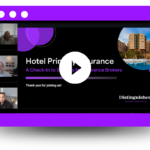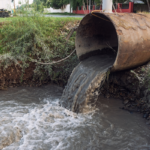Can’t make your rent or mortgage payment due to COVID-19? Here’s what you need to know
Since the beginning of the Coronavirus shutdowns, over 26 million workers have filed unemployment claims in the United States. As cases of COVID-19 spread and people across the country find themselves homebound due to shelter-in-place and stay-at-home orders, the retail and restaurant industries have been hit especially hard.
With millions of individuals out of work and businesses struggling to make a profit through pick-up and delivery-only options, many tenants are struggling to make rent. Even national chains like the Cheesecake Factory didn’t bring in enough revenue in March to make April’s rent, and landlords worry May could be an even bigger struggle as the COVID-19 outbreak continues. As residential and commercial tenants struggle to make rent, landlords are struggling to make essential payments toward mortgages, utilities, insurance, security, and maintenance.
So, what actions can you take if your business is struggling to make essential payments due to COVID-19?
If you’re a commercial tenant who can’t make rent due to COVID-19…
For tenants in qualifying buildings, landlords are not allowed to charge fees or penalties regarding unpaid rent until July 25. Further, landlords are banned from initiating eviction proceedings for payment-related reasons through the same date.
State and local governments have also attempted to prevent housing issues through the passage of eviction moratoriums, though housing activists worry that such measures may have negative externalities. The National Low Income Housing Coalition, a tenant advocacy group, has expressed concerns that low-income renters will find themselves falling off a financial cliff once their months of back rent come due. Meanwhile, the National Multifamily Housing Council has stated that months of eviction moratoriums may put small landlords at risk of foreclosure.
In an attempt to address the negative consequences that may be associated with eviction moratoriums down the line, both The National Low Income Housing Coalition and the National Multifamily Housing Council have called for direct subsidies for tenants. This, they argue, will relieve rent burden for tenants while supporting the operations of smaller landlords.
If you’re a landlord unable to make a mortgage payment due to COVID-19…
As mentioned above, landlords are likely to benefit from activists’ calls for direct tenant subsidies. However, landlords who are struggling to make mortgage payments may also find relief under several federal programs. For example, the most recent COVID-19 relief bill, which was passed April 24, provided an additional $60 billion in funding for Small Business Administration (SBA) disaster assistance loans and grants.
Mortgage Forbearance
Landlords of single- and multi-family housing financed through Fannie Mae, Freddie Mac, or the Federal Housing Administration are eligible to apply for a mortgage forbearance of up to 90 days if COVID-19 has impacted their ability to make mortgage payments.
Small Business Administration Express Bridge Loans and Debt Relief
For small businesses, including rental properties owned under an LLC with less than 500 employees, the SBA is offering Express Bridge Loans of up to $25,000 for financial relief. SBA Express Bridge Loans can be repaid with money from Economic Injury Disaster Loans, and come with a quicker turnaround than other federal aid.
The Small Business Administration is also offering Debt Relief to small businesses who currently have SBA loans and have suffered financially due to the coronavirus pandemic. For small businesses looking to take out a new SBA loan between now and September 27, 2020, the same debt relief terms will apply.
The Economic Injury Disaster Loan
The Economic Injury Disaster Loan is another form of federal COVID-19 relief for landlords. SBA-approved small businesses with less than 500 employees (including sole proprietorships, independent contractors and self-employed persons), private non-profit organizations, and 501(c)(19) veterans organizations affected by COVID-19 are eligible for EIDLs, which can amount up to $2 million and include up to $10,000 in emergency grant funds. EIDL aid can be used to cover equipment, rent or mortgage payments, working capital, or other expenses.
Applications for Economic Injury Disaster Loans opened on April 6, and grants will be available until December 31. The SBA plans to issue funds based on applicants’ credit scores and financial need.




